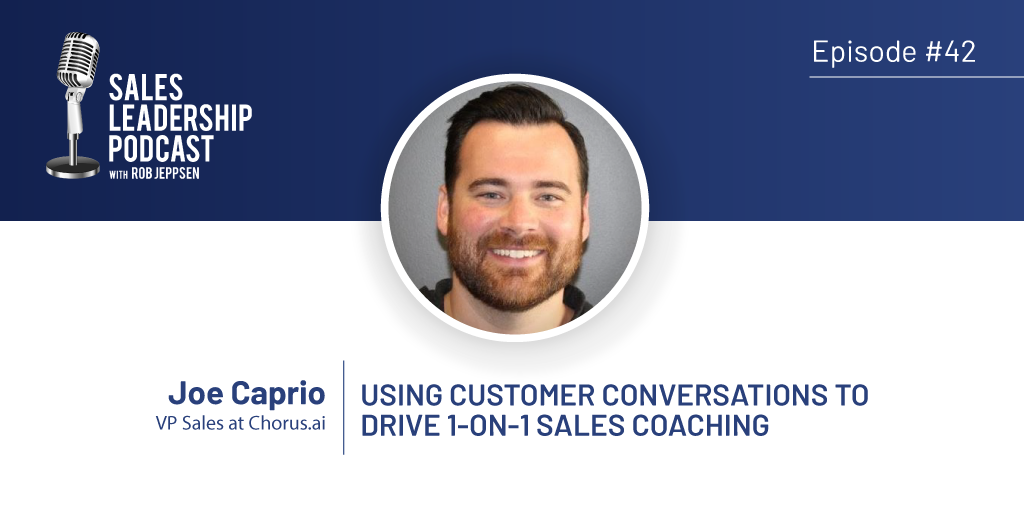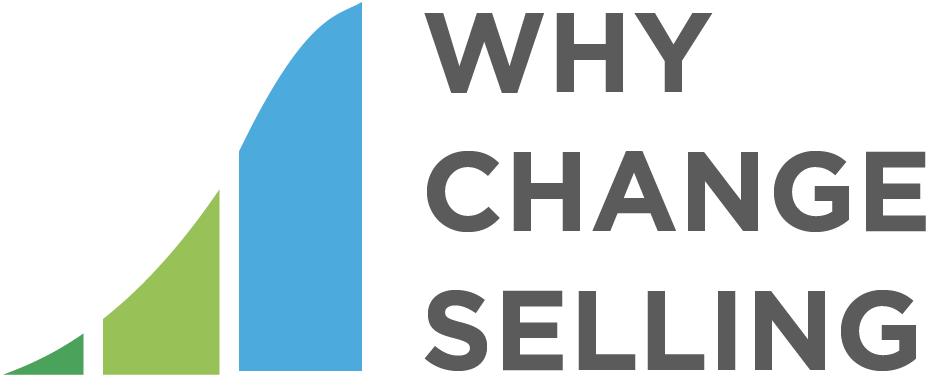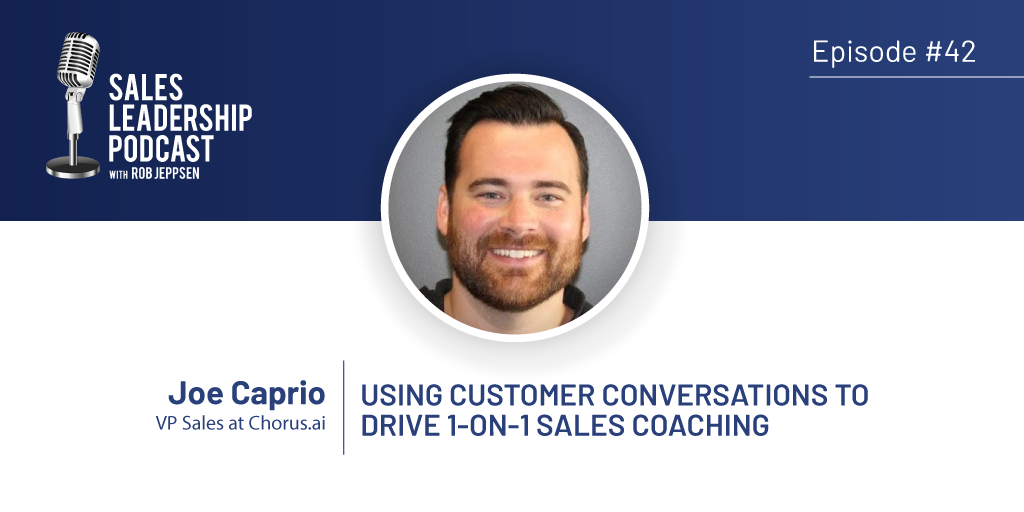Just listened to Rob Jeppsen's Sales Leadership Podcast episode #42, with Joe Caprio of Chorus.ai. This was excellent and I took notes which I'm happy to share below.

Chorus.ai Sales Leadership Podcast #42: Joe Caprio - Rob Jeppsen, CEO, Xvoyant
- Only 5% of what is talked about on the phone with the prospect/customer is entered into CRM.
- Joe cut ramp time of new hires in-half using Chorus.ai
- Increased overall win rate by recording what good looks like and getting other reps to listen to them.
How?
Started out listening to top salespeople's calls, the moved to peer-peer coaching, manager-rep coaching, then marketing and product got involved.
What we often don't don't talk in coaching is the silos that exist in most companies: - they don't know what customers want or need, they cannot see how their work impacts on customers on calls.
Their (Chorus.ai) high growth customers are leaning-in on call recording, listening to what their customers are saying - not just salespeople are listening, but leadership, the product team, marketing, engineering and customer support.
How to get into high growth mode and stay there.
1. Need product-market fit, white-hot space idea/problem for high growth opportunity to exist.
2. Need basics, blueprint or mentor to get basics down, clear playing field.
3. You are going to have to accept that the first sales hire cares less than you do and is less experienced and less capable. What works for you isn't going to work for the new rep. What you need to realize is that at every phase of growth, you are going to have to adapt and change; - this means you need to put monitoring in place (audit points) record calls, capture what's working, disseminate tribal knowledge - what are the best people doing?
Share with the rest. - find a way.
What are the best ways to individualize connection with reps.
In the early days you don't know anything.
Story from Joe; Discovered by a BDR, in a round table, that their ICP was Venture-backed SaaS in "ah-ha" moment.
Find a way to tap into the insights of individuals. - but how?
It has to start with leadership. Genuine curiosity about your customers, how they actually do their job. What makes it hard for customers in their current workflows? You have to have these conversations to find true "commercial insight". This needs to be your mindset to bring it back to the company and make it viral.
Key to this is to help your customer's customers to become more successful... this is a mindset shift. "Your messaging is good, but it's not great" .
Key point of insight: Think about removing your product from the conversation with the customer. If your genuine desire is to help your customer, then this is what you need to do. Only then do you become "customer-centric"... everyone else uses what they discover "against the customer".
Another issue is the timing when prospects don't get that they should prioritize the project and reps get peeved and complain.
Proper discover is identifying and solving problems for customers, not to take their money.
Key Question: What is the role of the manager-rep 1:1 in this area?
- Most companies have a 30-60-90 day onboarding program, but they don't have any scheduled ongoing training.
- Companies need a consistent ongoing structured curriculum where you train people throughout the year. Pick a small number of skills and go deep on them How you do it doesn't matter, but you have to schedule it.
- Every single person on the team should have their own personal development plan. Managers need to reserve time for skill coaching in the weekly 1:1. Not just deal coaching.



![Leading Sales Consultants 2018 enable[1]](https://www.whychangeselling.com/hubfs/Leading%20Sales%20Consultants%202018%20enable%5B1%5D.png)
